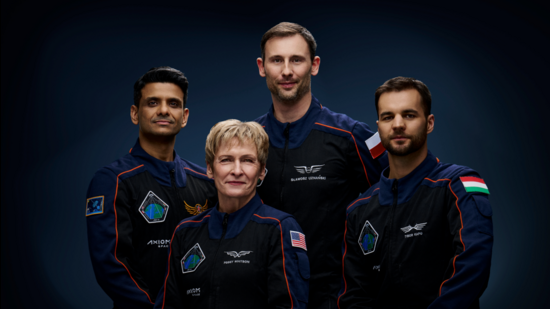India's Historic Leap: First Indian Astronaut Set to Reach International Space Station
India is preparing to make history as it finalizes plans to send its first astronaut to the International Space Station (ISS), marking a pivotal moment in the nation's rapidly advancing space program. This groundbreaking mission represents more than just a milestone for Indian space exploration—it signals the country's emergence as a major player in global space cooperation and scientific research.
A New Chapter in India's Space Journey
The Indian Space Research Organisation (ISRO) has been working closely with international partners to make this ambitious mission a reality. Following successful lunar missions with Chandrayaan-3 and the Mars Orbiter Mission, sending an Indian astronaut to the ISS represents the natural evolution of India's space capabilities.
This historic mission comes as part of India's broader human spaceflight program, which includes the upcoming Gaganyaan mission—India's first indigenous human spaceflight program scheduled for 2025. The ISS mission will serve as crucial preparation and training for Indian astronauts before embarking on their own spacecraft.
International Collaboration Takes Flight
The mission exemplifies the growing trend of international cooperation in space exploration. India joins an exclusive group of nations that have sent astronauts to the ISS, including the United States, Russia, Japan, Canada, and European Space Agency member countries.
According to recent agreements, the Indian astronaut will likely travel aboard a SpaceX Crew Dragon or Russian Soyuz spacecraft, depending on scheduling and availability. This collaboration opens doors for future joint missions and knowledge sharing between ISRO and established space agencies.
Scientific and Economic Impact
Research Opportunities
The Indian astronaut will conduct various scientific experiments during their stay on the ISS, focusing on:
- Microgravity research relevant to Indian industries
- Biological experiments studying the effects of space on human physiology
- Earth observation studies specific to Indian geographical regions
- Technology demonstrations for future Indian space missions
Economic Benefits
This mission is expected to generate significant economic returns through:
- Technology Transfer: Knowledge gained will benefit India's growing space industry
- Industrial Growth: The mission will boost India's space manufacturing sector, currently valued at over $7 billion
- Educational Impact: Inspiring a new generation of Indian scientists and engineers
- International Partnerships: Opening new avenues for commercial space ventures
Preparing for the Mission
The selected Indian astronaut has undergone rigorous training programs, likely including:
- Basic spaceflight training in India
- Advanced training at international facilities
- ISS-specific procedures and emergency protocols
- Scientific experiment protocols
- International crew coordination exercises
ISRO has invested heavily in developing the necessary infrastructure and expertise to support human spaceflight, including mission control capabilities and astronaut training facilities.
Global Significance
India's participation in ISS missions reflects the democratization of space exploration. With over 1.4 billion people, India represents nearly 18% of the world's population, making this mission symbolically significant for global representation in space.
The mission also strengthens India's position in the emerging space economy, which is projected to reach $1 trillion by 2040. By demonstrating human spaceflight capabilities, India positions itself as a reliable partner for future international space ventures.
Looking Ahead
This ISS mission serves as a stepping stone toward India's more ambitious space goals, including:
- The indigenous Gaganyaan program
- Potential lunar habitat missions
- Mars exploration with human elements
- Development of India's own space station by 2035
The success of this mission will validate India's human spaceflight technologies and procedures, providing valuable experience for future independent missions.
Conclusion
India's first astronaut mission to the ISS represents a watershed moment in the nation's space journey. Beyond the technological achievement, this mission symbolizes India's growing influence in global space exploration and its commitment to advancing human knowledge through scientific cooperation.
As India prepares to make this historic leap, the mission promises to inspire millions while positioning the country as an indispensable partner in humanity's continued exploration of space. The knowledge and experience gained will fuel India's space ambitions for decades to come, making this not just a national milestone, but a significant contribution to human space exploration.
